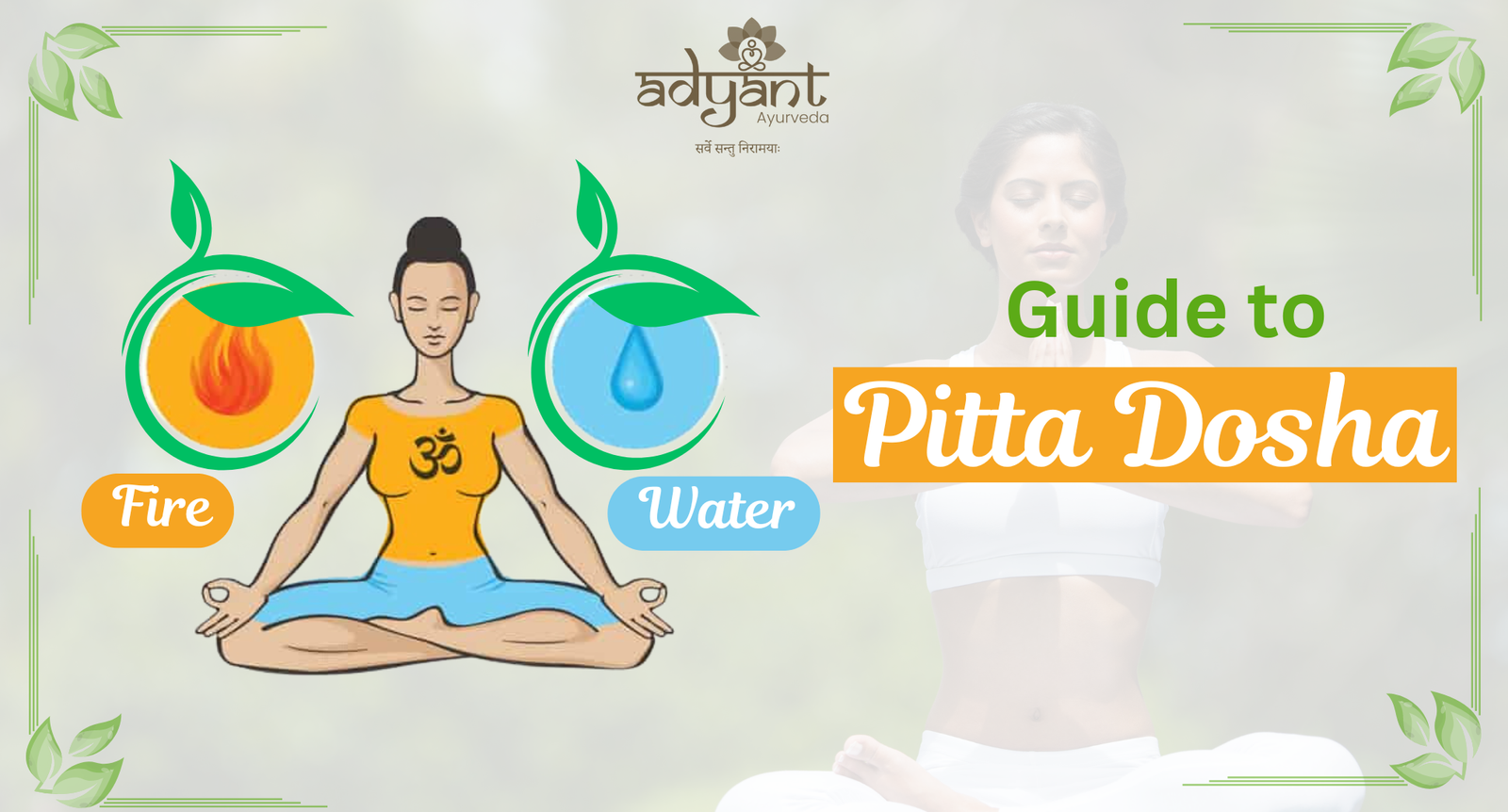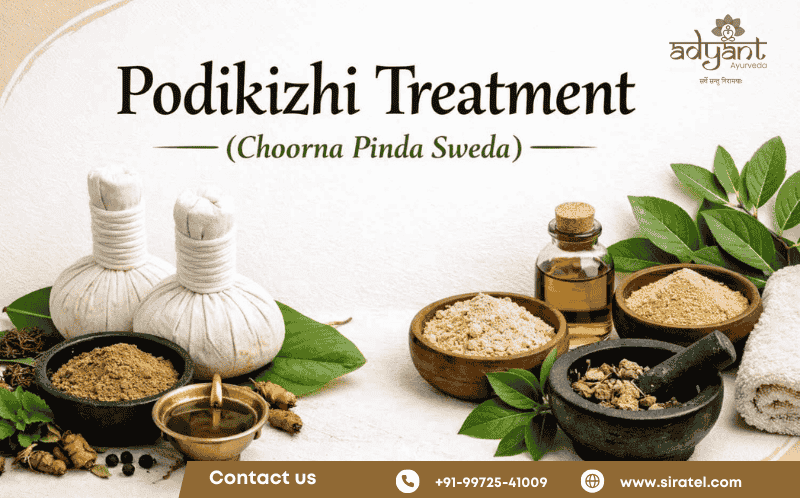Ayurvedic Treatment for Pancreatitis – A Holistic Approach to Healing
Pancreatitis is a painful and potentially serious condition caused by inflammation of the pancreas. Conventional medical treatments play a crucial role in managing acute pancreatitis and preventing complications. However, Ayurvedic treatment for pancreatitis offers a natural, holistic approach to healing by addressing the root cause and restoring balance in the body.
At Adyant Ayurveda, recognized as the Best Ayurvedic Clinic for Pancreatitis Treatment, we advocate an integrative approach that combines dietary modifications, herbal remedies, lifestyle changes, and Panchakarma therapies. In this blog, we’ll explore how Ayurveda treats pancreatitis naturally, bringing relief and long-term wellness.
Understanding Pancreatitis in Ayurveda
In Ayurveda, pancreatitis is linked to an imbalance in Agni (digestive fire) and an accumulation of Ama (toxins). This condition is primarily caused by a Pitta Dosha imbalance, leading to excess heat and inflammation in the digestive system.
Ayurvedic Perspective on Pancreatitis
Pitta Dominance: Leads to inflammation, acidity, and heat in the pancreas.
Vata Imbalance: Causes dryness, bloating, and erratic digestive patterns.
Kapha Accumulation: Results in mucus buildup, sluggish digestion, and heaviness.
Ayurvedic treatment for pancreatitis focuses on detoxifying the body, restoring Agni, balancing doshas, and rejuvenating pancreatic health.
Causes & Risk Factors of Pancreatitis (Nidana)
Excessive intake of spicy, oily, and processed foods
Alcohol consumption & smoking
Unhealthy lifestyle habits and chronic stress
Diabetes and obesity
Gallstones or high cholesterol
Symptoms of Pancreatitis (Lakshana)
Severe abdominal pain, especially after eating
Nausea, vomiting, and bloating
Weight loss and loss of appetite
Jaundice (in severe cases)
Fatigue and digestive distress
Ayurvedic Treatment for Pancreatitis (Chikitsa)
1. Panchakarma Detox for Pancreatitis
Panchakarma therapies help eliminate toxins and rejuvenate the pancreas:
✅ Virechana (Purgation Therapy): Removes excess Pitta and detoxifies the liver & pancreas.
✅ Basti (Medicated Enema): Balances Vata and improves digestion.
✅ Lepam (Herbal Paste Therapy): Relieves abdominal pain and inflammation.
2. Herbal Remedies for Pancreatitis
Ayurvedic herbs have been used for centuries to reduce inflammation, improve digestion, and support pancreatic function. Some of the most effective herbs include:
🌿 Turmeric (Haridra): Curcumin, a potent antioxidant, reduces inflammation in the pancreas.
🌿 Triphala: A blend of Amalaki, Bibhitaki, and Haritaki that detoxifies the digestive system.
🌿 Kutki (Picrorhiza kurroa): Supports liver and pancreatic health.
🌿 Aloe Vera: Soothes inflamed pancreatic tissues.
🌿 Licorice Root: Reduces acidity and improves digestion.
🔔 Pro Tip: Always consult an Ayurvedic doctor before taking herbal supplements.
3. Ayurvedic Diet for Pancreatitis (Ahar Chikitsa)
Diet plays a crucial role in healing pancreatitis naturally. Ayurveda recommends a Pitta-pacifying diet that is light, easy to digest, and cooling.
✔ What to Eat:
✅ Warm, well-cooked meals (soups, steamed vegetables, rice, moong dal)
✅ Cooling foods (coconut water, buttermilk, cucumber)
✅ Herbal teas (ginger, fennel, coriander, cumin)
❌ Foods to Avoid:
🚫 Spicy, fried, and oily foods
🚫 Processed foods & refined sugars
🚫 Alcohol & caffeine
4. Lifestyle Modifications for Pancreatitis (Vihara Chikitsa)
Ayurveda emphasizes healthy lifestyle habits to prevent recurrent pancreatitis flare-ups.
🧘♂️ Yoga & Meditation: Helps reduce stress and improve digestion.
🚶♂️ Regular Exercise: Walking, swimming, and light yoga promote metabolism.
🥗 Mindful Eating: Avoid overeating; opt for smaller, frequent meals.
🚫 Quit Smoking & Alcohol: These toxins aggravate pancreas inflammation.
Holistic Therapies for Pancreatitis
Apart from diet and herbs, Ayurveda offers holistic therapies that enhance digestion, reduce inflammation, and strengthen the pancreas.
💆♀️ Abhyanga (Herbal Oil Massage): Improves circulation and detoxification.
🌀 Panchakarma: Ayurvedic detox therapies like Virechana, Basti, and Nasya eliminate toxins and restore balance.
🌬 Pranayama & Yoga: Beneficial poses like Bhujangasana (Cobra Pose) and Dhanurasana (Bow Pose) stimulate abdominal organs and promote healing.
🧘♀️ Meditation & Mindfulness: Reduces stress, a key trigger for pancreatitis.
FAQs – Ayurvedic Treatment for Pancreatitis
1. What is the best herbal medicine for pancreatitis?
✅ Turmeric (Curcumin): A natural anti-inflammatory that soothes pancreas inflammation.
2. How can I detox my pancreas naturally?
✅ Reduce sugar and processed foods.
✅ Drink plenty of water.
✅ Follow a light, sattvic Ayurvedic diet.
3. What foods should I avoid with pancreatitis?
🚫 Fried, spicy, and junk foods.
🚫 Alcohol, caffeine, and high-fat dairy.
4. What is the best drink for pancreatitis?
✅ Herbal teas (ginger, fennel, turmeric tea)
✅ Coconut water & buttermilk
Conclusion – Ayurveda for Pancreatitis Treatment
Ayurveda offers a natural, holistic approach to pancreatitis by addressing root causes rather than just symptoms. By following an Ayurvedic diet, lifestyle changes, and herbal remedies, individuals can manage pancreatitis effectively and improve overall well-being.
At Adyant Ayurveda, our expert Ayurvedic doctors provide personalized treatment plans for pancreatitis, ensuring a safe and effective recovery.
📞 Looking for the Best Ayurvedic Treatment for Pancreatitis?
📍 Visit Adyant Ayurveda or call 9972541009 for a consultation today!









